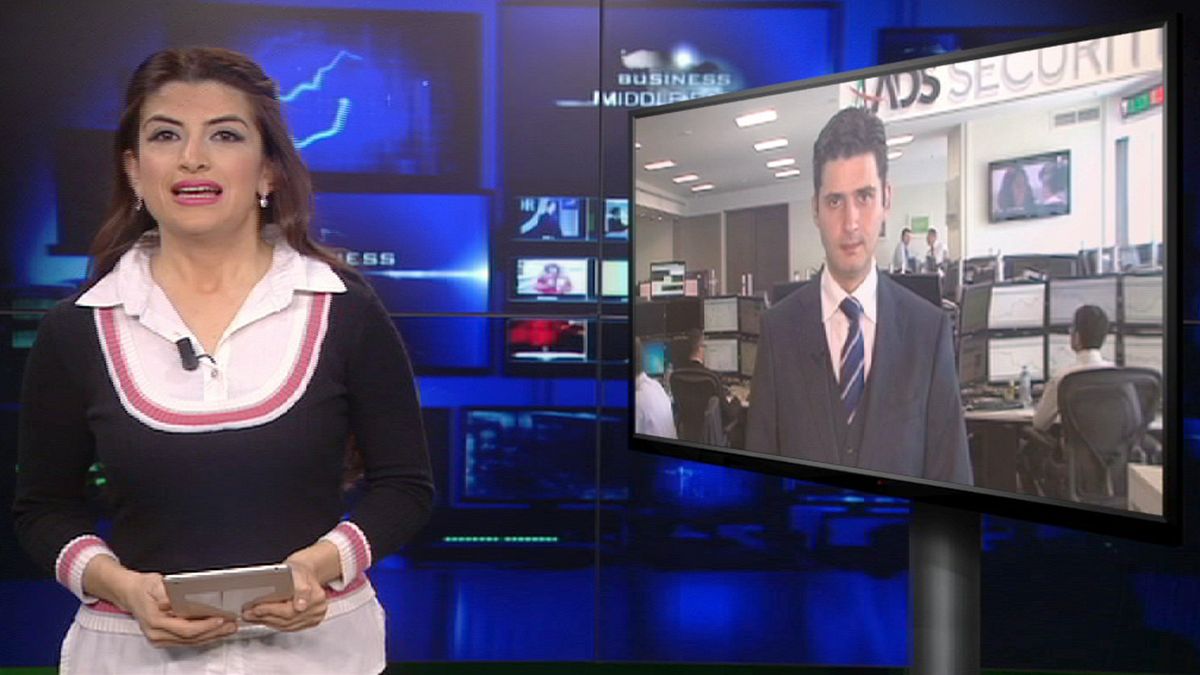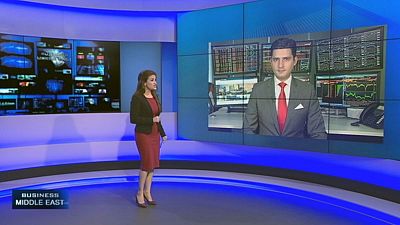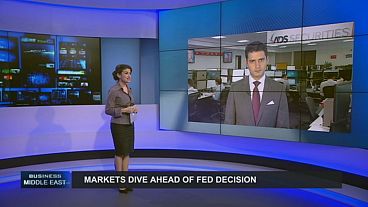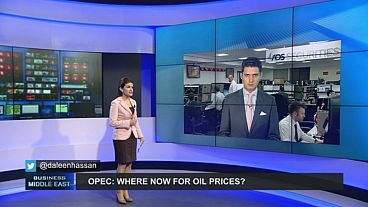Repeated bailout scenarios and last minute decision-making by the eurozone has led to questioning of when and if the end of the Greek crisis will
Repeated bailout scenarios and last minute decision-making by the eurozone has led to questioning of when and if the end of the Greek crisis will arrive.
The Athens government is caught between the hammer and anvil of European creditors’ terms, and people weary of austerity measures. How could these decisions, taken by the eurozone and the Greek government, affect the markets and currencies?
Euronews correspondent Symela Touchtidou said “The coming days are decisive for Greece as the government and the institutions struggle to reach common ground before the crucial meeting of the Eurogroup on the 24th of April. Without an agreement, and a following that a disbursement of aid, the Greek government warns it will not be able to meet its obligations next month.”
Eurozone negotiations continue as the Greek situation becomes more complex. Despite all the talks of a Greek exit and default, Greece has so far succeeded in meeting its obligations to the IMF and its creditors.
The ECB has increased the emergency liquidity assistance available to Greek banks by 1.2 billion euros, to a total of 73.2 billion euros, even though the ECB noted that they might suspend the assistance.
Despite tensions, European equities increased last week as the DAX30 spiked to another all-time high above 12.300 points and France also reached a high of 5.240 points . This can be put down to the ECB’s decision to raise liquidity to Greece.
The euro has fallen below 1.06 against the US dollar. This change has led to an increase in currency trading in the Middle East. Gulf currencies also advanced against the euro and the British pound which is basically a positive note for the region.
Daleen Hassan, of euronews spoke to Nour eldeen Al Hammoury, Chief Market Strategist at ADS Securities in Abu Dhabi, and asked: “Why did the eurozone allow the situation in Greece to worsen but then support Greece at the last minute?”
Nour eldeen Al Hammoury explained: “The Greek situation has been the same for five years. Despite all the talk of a Greek exit, Greece is in the Eurozone and so far there is no default.
“If this issue if gets more complex it could affect the eurozone’s image, and now Greece is seen as a key for the eurozone and the currency union. A Greek failure would be a failure for the entire eurozone. So it’s not in the EU’s interest for Greece to leave.
“Germany is worried about the domino effect after Greece. Therefore, we don’t think that Greece will leave the eurozone anytime soon. Moreover, two years ago, the Greek situation was even worse than the current situation.
By tracking the situation especially last week when Greece fulfilled its promise to the International Monetary Fund, we believe that despite doubts, there is no way out for the eurozone but to keep Greece to defend the unity of the union.”
Daleen Hassan asked: “What would be the impact of Greece’s next moves on the stock market and currency trading globally and in MENA?”
Nour eldeen Al Hammoury explained: “The euro has come down lately back to 1.05 and is likely to remain under pressure in the next few weeks. Certainly after the scheduled meeting of the Athens government and European creditors on 24th April. This is due to the ECB’s policy, which aims to send signs reassure everyone in solving the crisis in addition to the quantitative easing policy, and do not forget the anticipated rates hike by the Fed this year. In the Mena region, the euro fell to 3.88 UAE dirhams last week, which is the lowest level since March. It also fell to 3.97 against the Saudi Riyal.
“The continuous decline in the euro is seen good for the people here in the region, and for Europe as well, in terms of the recovery of the tourism sector this season. For traders, there will be a good moves compared to the previous period, for example traders were paying 500 dirhams to buy 100 euros. But now, traders are paying 360 dirhams to buy 100 euros. This is almost 30% cheaper.
MENA Forex Expo: New Opportunities
Dubai has hosted the 14th MENA Forex Show “Managed funds and Investment Opportunities”. More than a thousand people came to the event, including business executives, market analysts and major companies. The show was seen as an important opportunity to emphasize the recovery of the trading sector via the internet and to discover new investment opportunities in both the private and public sector.
The timing of this Exhibition was crucial following the January announcement that the Swiss Central Bank would remove the cap on the Swiss franc’s euro exchange rate, which inflicted enormous losses to global brokerage firms, banks and investors.
The main goal for this edition was to reassure investors that the trading sector had overcome the crisis within a short period of time, according to Arabcom founder Katia Tayar.
For two days in Dubai, investors, traders and market analysts shared thoughts and experiences.
Currency trading in the Gulf region has become a factor for attracting overseas investors, which has increased the importance of conferences and Forex exhibitions as a good opportunity for investors and companies to communicate directly.
For more business news join us on our Euronews business Youtube channel.



